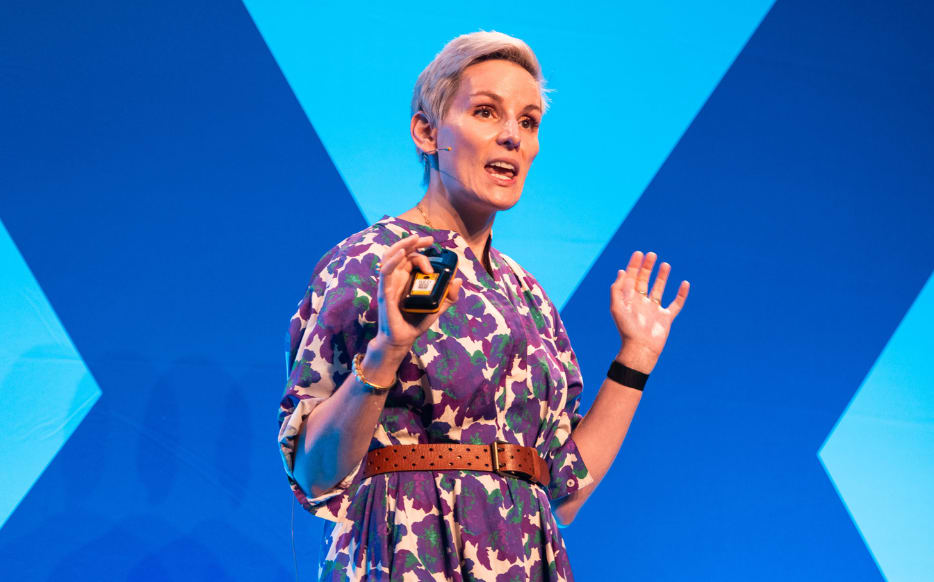You have 1 article left to read this month before you need to register a free LeadDev.com account.
Estimated reading time: 3 minutes
GenAI has thrown a curveball into the world of engineering, but it won’t be the last hype cycle in tech. So how do you adapt as your job evolves?
GenAI is the latest force to rewrite our roles, but it isn’t the first, nor will it be the last time this sort of change affects our industry. I’ve witnessed many transitions throughout my career, including the shift from project to product, from hosted to cloud-based software, from back-end engineer to full-stack engineer, and more. To navigate this, remember that a job role and its description are neither fixed nor a reflection of your identity. Roles and responsibilities are tools that businesses use to organize work; as the needs of the business change, so will the work.
Ultimately, having a successful tech career isn’t grounded in mastering one singular technology or “best practice,” but in knowing how to respond when those precedents are disrupted.
Don’t confuse your identity with your job
Earlier in my career as a consultant, I worked with organizations that were adopting new methodologies and technologies, and I also witnessed certain people struggle to adapt to change. Looking back, it’s clear that many of those people tied their self-worth and identity to their job title.
I recall working with someone who had been a C developer for 20 years and struggled to learn Java. They struggled not because Java was hard to learn, rather, they struggled to reconcile the implications of discarding 20 years of C experience and the value they now offered their organization. In this particular situation, I helped them recognize that their value was not in remembering all the C APIs and library calls, but in applying software engineering concepts to solve business problems.
Remember that what you do is your job, and your job is not who you are. Your experience and skills can be applied to a wide range of roles. Build more resilience by separating your sense of self from your job, and when a company changes what they need from that job, you will be more ready to adapt.
Your inbox, upgraded.
Receive weekly engineering insights to level up your leadership approach.
Invest in your personal development
Great companies support your personal development, but no one else can do the learning for you. As jobs evolve, so must you. You should take ownership of your personal development, rather than waiting for a manager or a learning and development team to prompt you.
Today, we have a great variety of resources available, including articles on this site, conference talks, YouTube channels, online/in-person courses, as well as blogs and newsletters where people share their experiences and lessons learned. Find ways to align your learning with a task you have at work. Even if your company doesn’t give you dedicated learning time, you should always be able to find 30 minutes a week (e.g., 3 x 10-minute blocks) to invest.
Focus on understanding core principles and constantly apply and test your knowledge. Finding a task where you can use what you’ve just learned in your day-to-day workflow is key. In the context of today’s AI hype cycle, try to apply an AI/coding agent tool to a small part of your current project. Or, if you’re a leader or manager, use an AI tool to ask for feedback on a draft document you composed (keeping in mind privacy rules).
When it comes to learning new tools and technologies, remember that no one is born an expert, and others are learning these tools as well.
More like this
Continually search for your Ikigai
As shifts occur, it can be helpful to revisit the Japanese concept of Ikigai – the intersection of what you’re good at, what you love, what you can be paid for, and what the world needs. While you can’t necessarily control or always influence what you’re paid for and what the world needs, focus on the two elements that you can control and influence. Ask questions like, “Does this task energize me?”, “What other tasks might energize me?”, or “What skills can I build that my organization desperately needs?” Don’t see Ikigai as a one-time achievement, but rather as an ongoing journey. And every shift is an opportunity to revisit it.

London • June 2 & 3, 2026
LDX3 London prices rise March 4. Save up to £500 💸
Final thoughts
Change is inevitable in tech, and GenAI is simply the latest wave reshaping jobs and organizations. Navigating job changes is not just about technical proficiency – it requires adaptability, self-awareness, and a commitment to lifelong learning. By understanding the purpose of job roles, separating personal identity from job titles, and actively investing in personal development, you can remain resilient and continually relevant. Adopt the XP philosophy of embracing change as an opportunity to grow rather than a threat, to reconnect with your purpose, and to move towards your Ikigai continually.





